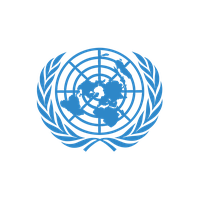
World Population Day
Taking place on 11th July every year.
A time to reflect on population trends and related issues.
About the event
An annual event that marks the date when the world's population reached 5 billion (11 July 1987). There are now 7.7 billion people in the world, and there will probably be 8 billion by 2030. This day is used by the UN to highlight issues associated with population such as family planning, gender equality, poverty, maternal health and human rights. In particular, the UN highlights that discussion of population should focus on equality and equal opportunities for everyone.
How to approach it
Population is a contentious issue that is becoming more so with the onset of climate change. It’s instructive that students are made aware of the lively debate surrounding population issues. Often, population is referred to when speaking about overpopulation e.g. fears that a large, expanding global population may stretch resources, space and political systems. In the context of climate change, expanding populations are worrying given that we need to cut down global emissions and manage disrupted food systems. One side of this debate therefore argues that planned parenthood should be used in order to reduce population growth and demand for resources. The other side argues that the issue isn’t overpopulation but overconsumption, especially the overconsumption of western industrial countries. This side argues that it is this smaller, wealthier portion of the world who need to drastically reduce their energy use, compared to everyone else.
This debate offers a great opportunity for a discussion that brings up lots of different issues. Issues of fairness, inequality and responsibility. For example, the fastest growing populations are often in countries with some of the lowest per-capita energy emissions. You could ask: is it right for the rest of the world to require population controls on these countries when the richest countries are most responsible for climate change? On the other hand others argue that managing population growth takes the pressure off women to raise large families, thus allowing for greater autonomy. Don’t expect a definitive answer here, the important thing is helping students understand how different rights, responsibilities, and obligations should be balanced.
Organised by
United Nations

Conversation starter
The world's population is growing every day. Some people say that we need to control population so that we don't run out of resources. Other people say that there are more than enough resources to go around, and we should focus on cutting down waste instead. Which is most important to change: our resource use or the size of our population?




